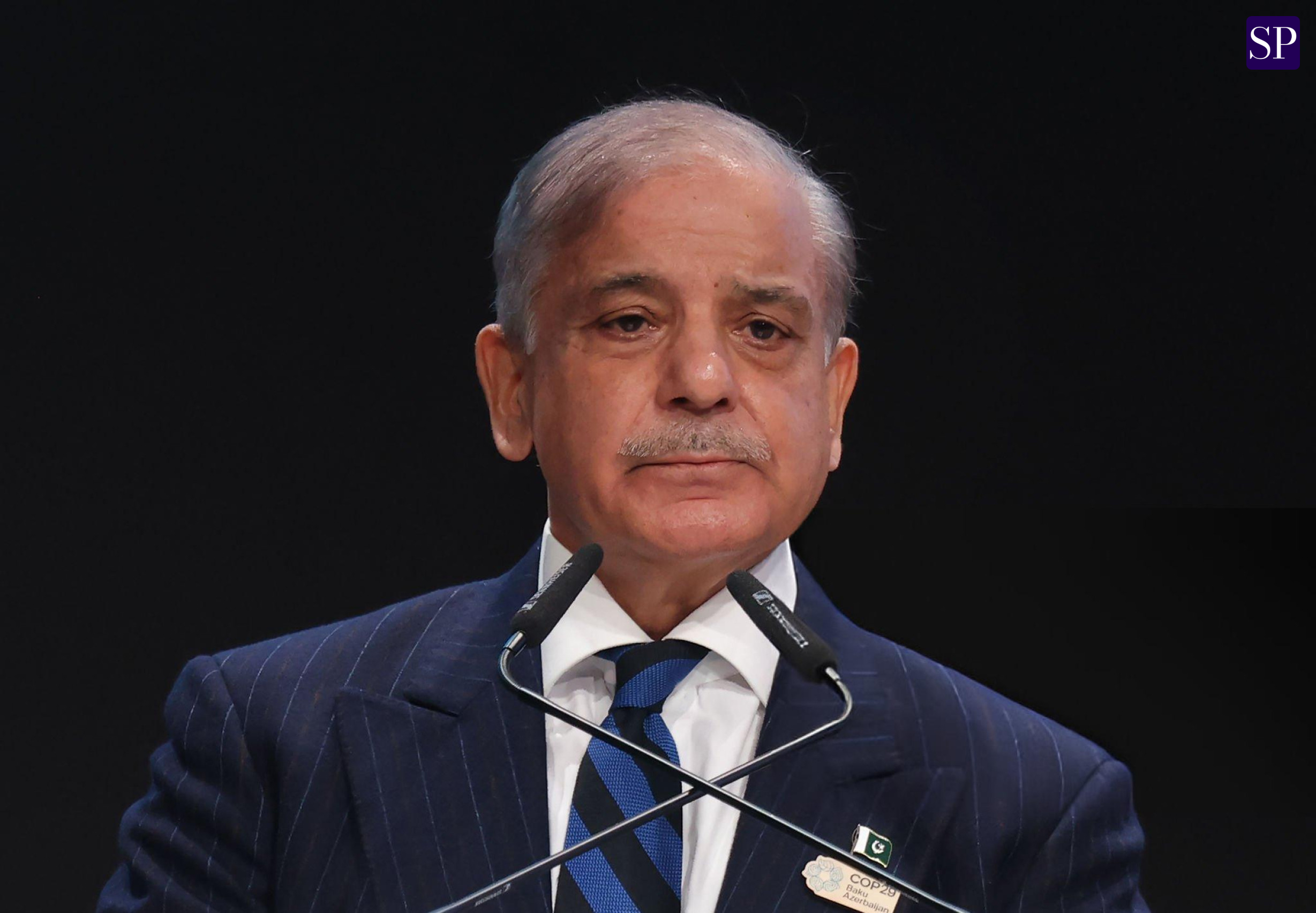Pakistan’s Economic Reforms Gain Global Recognition
The International Monetary Fund (IMF) has expressed firm support for Pakistan’s Prime Minister Shehbaz Sharif and his decisive economic policies aimed at stabilizing the country’s financial situation. On Wednesday, February 12, 2025, the IMF Managing Director, Kristalina Georgieva, publicly praised Pakistan’s ongoing economic reforms and efforts to sustain fiscal discipline, which are integral to the $7 billion Extended Fund Facility (EFF) loan program agreed upon last year.
The backing from the IMF comes at a crucial time as Pakistan continues to implement tough economic measures to overcome its balance of payments crisis. These measures have been essential for securing global financial credibility and setting the stage for sustainable economic growth.
Shehbaz Sharif’s Meeting with IMF Chief in Dubai
Prime Minister Shehbaz Sharif, during his visit to the United Arab Emirates (UAE) for the World Governments Summit (WGS) in Dubai, held a strategic meeting with Kristalina Georgieva. The discussion revolved around Pakistan’s economic trajectory, ongoing structural reforms, and financial stability, as outlined in the IMF-supported program.
The PM Office released a statement highlighting the primary focus areas discussed during the meeting, including:
- Macroeconomic stability achieved through comprehensive reform efforts.
- Implementation of structural changes to drive sustainable development.
- Long-term fiscal discipline to ensure economic resilience.
Following the meeting, Georgieva took to social media platform X (formerly Twitter), stating:
“I am encouraged by their strong commitment to Pakistan’s IMF-supported reforms and support their decisive actions to pave the way to higher growth and more jobs for Pakistan’s youthful population.”
This endorsement reinforces the IMF’s confidence in Pakistan’s ability to navigate economic challenges and build a robust financial framework for the future.
Pakistan’s Progress Under the IMF Loan Program
In 2024, Pakistan secured a $7 billion IMF bailout package, which required the government to undertake strict economic reforms. The program focused on reducing fiscal deficits, boosting revenue generation, and improving governance. As a result, Pakistan has witnessed significant improvements, including:
- A steady increase in foreign reserves
- Declining inflation rates
- A stronger regulatory framework for economic activities
Finance Minister Muhammad Aurangzeb emphasized these achievements, stating that Pakistan is on track to fulfill its IMF commitments. He also mentioned that the government is prioritizing taxation reforms, energy sector efficiency, and state-owned enterprise (SOE) restructuring to further stabilize the economy.
IMF’s Scrutiny on Pakistan’s Financial Governance
An IMF team is currently in Pakistan conducting an in-depth evaluation of the country’s judicial and regulatory systems. The assessment aims to address vulnerabilities related to governance and corruption and ensure that reform measures are being effectively implemented.
According to government sources, the IMF’s review will focus on:
- Transparency in financial transactions
- Efficient tax collection mechanisms
- Public sector expenditure management
- Energy sector sustainability
This evaluation will play a crucial role in determining the next phase of Pakistan’s economic recovery, as the country seeks to maintain investor confidence and unlock further financial support.
Pakistan’s Economic Outlook: Challenges and Opportunities
Challenges
While Pakistan has made significant progress, several economic challenges persist, including:
- High External Debt – Pakistan still faces a large external debt burden, which requires careful management to avoid financial instability.
- Inflationary Pressures – While inflation is declining, essential commodity prices remain a concern for the general public.
- Structural Weaknesses – The government continues to work on restructuring state-owned enterprises (SOEs) and reducing fiscal deficits.
Opportunities
Despite these hurdles, Pakistan’s economic reforms offer new opportunities:
- Foreign Direct Investment (FDI) Growth – Improved economic policies are expected to attract foreign investors, especially in technology, energy, and infrastructure sectors.
- Job Creation – With IMF-backed reforms, Pakistan aims to generate employment opportunities, particularly for the youth.
- Trade Expansion – Strengthened financial policies will facilitate better trade agreements and enhance exports.
Pakistan’s ongoing economic transformation under the IMF’s guidance is a positive step toward long-term financial stability. The government’s commitment to structural reforms, fiscal discipline, and investment-friendly policies is crucial for achieving sustainable growth. However, continued transparency, governance improvements, and policy consistency will be essential to fully realize Pakistan’s economic potential.
With IMF backing and global support, Pakistan is on a path toward economic resilience, job creation, and enhanced investor confidence. The coming months will be crucial in determining the success of these efforts, and all eyes will be on Islamabad’s ability to sustain and expand these hard-earned gains.
